President Javier Milei met Thursday with representatives from 20 of Argentina’s 23 provinces and the mayor of Buenos Aires City as he began his post-election push for “second generation” reforms.
The meeting was held in the Salón Eva Perón on the first floor of the Casa Rosada with the President accompanied by most of the members of his Cabinet.
After two years marked by tensions with many provincial leaders, Milei struck a conciliatory tone, inviting most governors to the Government House in Buenos Aires. But not all were invited – the head of state only summoned the provincial governments which he deems "rational" – a quality he described as being "pro-capitalist, for whom one plus one makes two."
Milei, 55, is seeking to ensure approval of the national Budget bill in Congress and to advance with key labour and tax reforms, following his midterm election victory last Sunday.
Despite expanding his caucus in the pivotal vote, Milei’s La Libertad Avanza party remains a minority in Congress. They will need the support from provincial leaders – and their lawmakers in both chambers – to pass Milei’s 2026 Budget and push through his reform agenda.
“It was an extremely positive meeting, in which we managed to reach an understanding – with some nuances – about what Argentina needs at this stage,” Milei told the A24 television news channel on Thursday night.
He said there is “absolute agreement” with his top priority, maintaining fiscal balance as a state policy.
“The new Congress’s first challenge will be to approve labour modernisation, tax reform, and reform of the Penal Code,” Presidential spokesperson Manuel Adorni announced in a brief press conference after the meeting.
Adorni said that the tax reform “will eliminate a multitude of taxes,” the labour reform “will bring informal workers into the system,” and that changes to the Penal Code will aim to “guarantee the right to private property.”
After the meeting, Buenos Aires City Mayor Jorge Macri described the talks as “positive” and said they focused on “lowering taxes, achieving a balanced budget, and creating new forms of employment for emerging types of work.”
The most notable absence was opposition Peronist leader Axel Kicillof, the governor of Buenos Aires Province, which accounts for 40 percent of the population.
Kicillof – and three other Peronist governors – was not invited to the Casa Rosada talks. “It’s a mistake not to invite almost half the country,” the former national economy minister said in a radio interview on Thursday.
Milei responded that the excluded governors were those who “repeat the Marxist catechism.”
“There’s a line that wants to take us to Venezuela or Cuba,” Milei argued. “If they keep repeating the Marxist catechism – the same recipes that plunged Argentina into decline over the past hundred years – it’s very hard to have a reasonable dialogue. We can’t sit down with people for whom two plus two doesn’t make four.”
Buenos Aires Province Government (Interior) Minister Carlos Bianco deplored this exclusion.
"It’s a shame," Bianco said in dialogue with the TN television channel, assuring that Kicillof "has for some time been calling for a meeting with the President" over the problems suffered by the citizenry of his province "as a consequence of the national government’s economic policies."
The three other exclusions were governors Ricardo Quintela of La Rioja, Gildo Insfrán of Formosa, and Gustavo Melella of Tierra del Fuego.
The regional representatives who participated in the meeting were the aforementioned Jorge Macri, governors Raúl Jalil (Catamarca), Ignacio Torres (Chubut), Martín Llaryora (Córdoba), Gustavo Valdés (Corrientes), Rogelio Frigerio (Entre Ríos), Carlos Sadir (Jujuy), Sergio Ziliotto (La Pampa), Hugo Passalacqua (Misiones), Alberto Weretilneck (Río Negro), Gustavo Sáenz (Salta), Marcelo Orrego (San Juan), Claudio Poggi (San Luis), Claudio Vidal (Santa Cruz), Maximiliano Pullaro (Santa Fe), Gerardo Zamora (Santiago del Estero), Osvaldo Jaldo (Tucumán), and deputy governors Silvana Schneider (Chaco), Hebe Casado (Mendoza) and Zulma Reina (Neuquén).
Cabinet Chief Guillermo Francos and Ministers Luis "Toto" Caputo (Economy) and Lisandro Catalán (Interior) were also involved in the talks.
Last Sunday’s election results “shows the will of the more than two-thirds of Argentines who demanded not to return to the past, but to move towards a future of freedom,” Milei told A24.
Milei thanked the governors who attended the meeting at the Casa Rosada, saying: “The first thing we did was express our gratitude – it’s a gesture that speaks very well of them. I’m defined by a sort of extreme Bilardismo,” he said, invoking a football reference to describe his results-oriented political approach.
This summons resembles the 'Pacto de Mayo' signed in Tucumán last year with the presence of 17 provincial governors. Neither Kicillof nor Melella nor Quintela nor Insfrán showed up to sign on that occasion either. Nor did La Pampa Governor Ziliotto, who pledged his presence for last Thursday, or Claudio Vidal of Santa Cruz, delayed by a blizzard.
With this meeting, Milei is seeking "to translate into law the watchwords of the Pacto de Mayo."
His aim is to begin discussing the reforms which are to be debated in extraordinary sessions of Congress early in 2026. These bills will be drafted once the Consejo de Mayo (headed by Francos) concludes its final report, something scheduled for mid-December.
– TIMES/NA/PERFIL


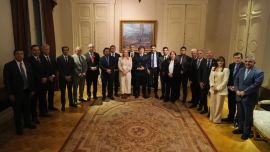







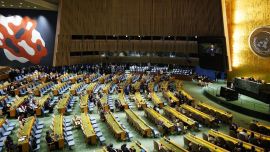




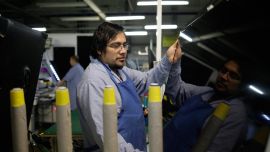
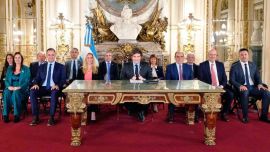
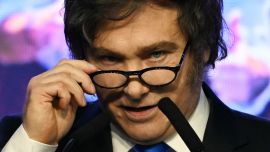

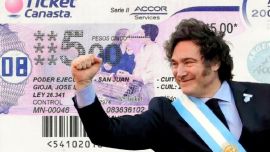
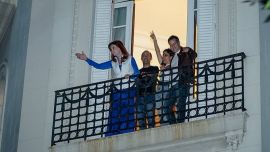


Comments